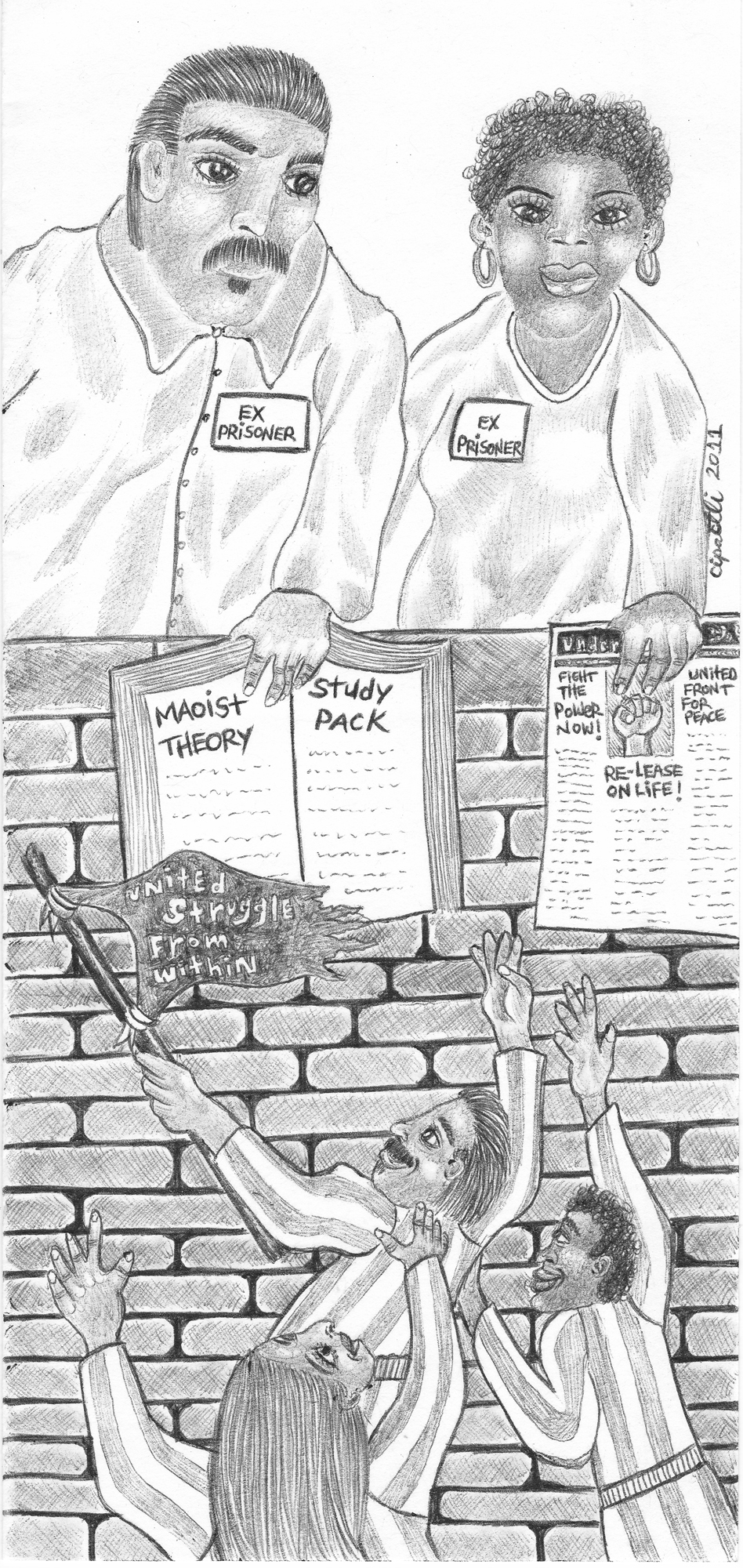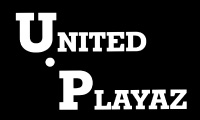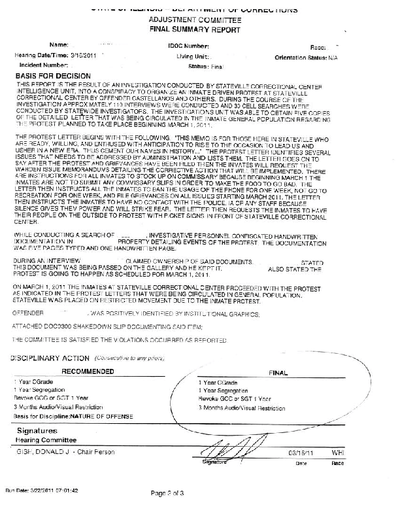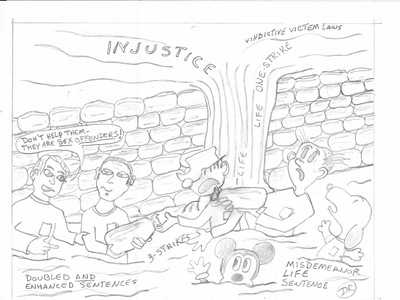
Overcoming Release Challenges

There are two specific challenges we face with our comrades who get out of prison and want to stay politically active. First, the difficulties of balancing work, school, politics and general home life. Second, the overlap between friendship and politics. It is important that we address these challenges to help our comrades follow through on their pledges to serve the people after gaining their freedom.
So far we have been less than successful in this regard, and many comrades fall out of touch with us, only to re-emerge when they are locked back up months or years later. In a country with such a relatively low number of active, committed anti-imperialists, losing these comrades to the streets is a significant blow to our work. As we expand our Re-Lease on Life Program, we are working to address specific challenges with life on the streets in the belly of the beast.
Meeting Your Basic Needs
There are few resources for released prisoners, and without family or friends to provide support it’s very difficult to find housing, get a job and provide for basic necessities. There are few studies of homelessness among released prisoners, but those that we’ve found suggest that at least 10% of parolees end up on the streets without housing after release.(1) The numbers are probably higher; sleeping on a friend’s couch is not a long term solution but it won’t get you counted as homeless in these studies.
Unfortunately MIM(Prisons) doesn’t currently have the resources to provide much help in the area of basic needs for released prisoners. We do have some resource guides for some states, and we can help you think through the best plan for your circumstances. But our ability to help in this area is limited. The rest of this article focuses on people who are released and are able to meet their basic needs. If you have a release date coming up, let us know so we can help you make a plan for the streets.
Time Management on the Streets
Behind bars life is very regimented, with little room for any decisions about how to organize your day, except when you are locked in your cell. And even there, your options for how to spend your time are very limited. You don’t have to keep a schedule because the prison keeps it for you. So one of the problems prisoners face when they hit the street is the vastness of opportunities and choices, and the lack of structure.
Many comrades will want to pursue some education, while also finding a job, and attempting to reconnect with family and friends. This means a lot of choices and opportunities, and structured days are necessary to make them fit together. The demands of family and friends can be especially difficult during the initial months post-release after so long with social interactions closely monitored and limited.
Friends, family, school and work are all institutions that are deeply ingrained in and supported by our culture. There is no support for doing revolutionary organizing. That is why Re-Lease on Life is so important. People have a hard enough time doing the normal things they need to do to get by as former prisoners, especially as felons. If you just go with the flow, you’ll find your time just flies by and you don’t put in any political work.
To participate in the Re-Lease on Life program you need to make a commitment to political work upon release. But most people will need to keep this commitment minimal at first, so that you can focus on getting established with a plan for meeting your long-term needs as an individual, while keeping a connection to the movement.
It’s important to think about the future. If you get government assistance, or have a part-time hustle when you get out, how long can that last you? If you don’t have job skills or a college degree you should consider school and look into scholarships. On the other hand, it may be worthwhile to focus initially on just making some money before you consider starting school.
Think about where you want to be in a year or two. If your political work is limited by time now, how can you free up more time in the future? One way is by getting into a career path where your income will grow with your experience. Another consideration when looking for jobs is, how can it support my bigger goals? If you work in food service, you save money by bringing home leftovers. If you work at a copy shop, you get discounts on fliers and literature. Getting a manual labor job might help you meet your physical fitness goals. If you work at a security job you get paid to do your political study, leaving your free time to do outreach work.
Whatever your plan is, you need to start thinking about your time as a budget. You have only so much each week, each day. Determine how much you really need for the necessities in life and then schedule that time.
A week has 168 hours in it. If you sleep 8 hours a night that leaves 112. If you need 2 hours a day to cook, eat and take care of persynal hygiene, you are down to 98 hours. Take at least 5 hours a week to deal with other persynal stuff like finances, cleaning, and organizing. You want to work out at least 4 hours per week, maybe more like 8. Now we have 85 left. If you work full time you’ve got 45, plus transit time, so make that 40. If you’re going to school too, you could probably use up most of that 40. If you have regular appointments with your parole officer, doctor or counselor, that will take a few hours. In your best case scenario you might have 40 hours to spend on socializing, relaxing and doing political work. Realistically, finding 15 to 20 hours a week to do political work with a normal bourgeois life is an ambitious goal that requires discipline and good planning.
Keep in mind that even if you only have 5 hours a week free for political work, that is 5 hours of work getting done in the interests of the oppressed. Any time you can set aside for this work is good. And when you first hit the streets this will be easiest if you can set aside that time on your schedule so that it is always the same day/time. For instance, you could say that Tuesday and Thursday nights you will do political work from 5-8 p.m. Block it off on your calendar and tell your friends you have appointments or classes at those times (see below). Working this into your schedule as a regular thing will make it much easier to maintain your activism. If you give up and stop doing political work, chances are good that you will never take it up again. The revolution can’t afford to lose good activists like you, so don’t let that happen!
Money is Time
Just as challenging for many former prisoners as managing time is managing money, and the movement needs both. Don’t fall into Amerikan consumerism. Imperialism has kept itself going by building a consumerist culture at home to keep capital circulating. What that means is that a typical Amerikan lifestyle involves far more consumption than is necessary (or even healthy). Having your own apartment, your own car, a cell phone plan, and others preparing your food for you are just some obvious examples of things considered to be “necessary” expenses justifying the so-called “high cost of living” in this country. Seek out others who you can share expenses and cost-saving tips with. Extravagant spending is often a social behavior. Many recreational things like cable television, alcohol and cigarettes become habitual expenses. Rest and recreation are important, but try things that are more healthy and cost less, and if you do want to splurge, make it a special reward, not a daily expense.
One of our strengths in this country is that Amerikans get paid extremely high wages. By keeping expenses low, you’ll find that you can get by on a part-time job, leaving you with more time to do what is most important to you. Remember, even if you’re making minimum wage you are in the top 13% income bracket in the world. Don’t use poverty as an excuse, when your wealth and privilege are really what’s holding you back from doing political work.
The Persynal vs. The Political
Related to the challenges you will face with managing your time on the streets is the social demands of family and friends. The overlap between friendship and politics is something that most people don’t consider. In fact, in this country we are encouraged to think about politics as something we must share with family and friends. But MIM(Prisons) does not agree with that view.
We live in a country where most people have a very strong material interest in the status quo, and so they will oppose anti-imperialist politics. The chances of winning them over to the side of the revolution are very minimal, and there is generally no need to destroy relationships with family and friends in the name of this struggle when there are so many other people out there we can try to recruit. Also, because of security concerns in this country, exposing your politics to family and friends can put you at a real risk, especially if you are on parole. If there’s one thing you should have learned being locked up, it’s that snitches are everywhere.
There is nothing wrong with having friends who don’t share your political convictions, you just need to avoid talking about politics with them or only talk about smaller points of politics, without raising suspicion. This doesn’t mean you can’t share your political views with friends and family who show that they are likely to be interested and agree, but be careful because once they know your views and the work you do, you can’t take it back.
Basics About Security on the Streets
When you are locked up in prison the government has a lot of information about you and knows your every move. So behind bars you can only control your security to the extent that you keep your mouth shut on the yard and don’t share information about the political work you are doing with people who might use it against you.
On the streets things are a little different. Although you might have to
report in to a parole officer or allow the state to track you in some
other way as a term of your release, you have a lot more freedom about
what information you do and don’t share with people and with the
government. You are under no obligation to tell anyone about the
political work you do, and in fact you should do your best to keep this
private from people you know unless you have a reason to believe that
they would be supportive. And of course you want to keep it a mystery
from the state. This is NOT because we are doing anything illegal, but
rather because the state does not like anti-imperialists and will use
this as a reason to find or create an excuse to lock you back up. So
don’t make this easy for them.










